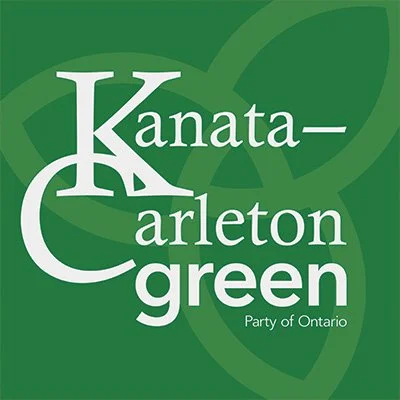With a week to go in the Ontario provincial election, there is increasing talk of strategic voting by those who see voting Green as a vote for the Conservatives, just as we saw in the 2015 federal election. Here are a few rebuttals to that argument:
It’s your vote: People who say you should vote for their party of choice are telling you how to vote. That’s not how democracy is supposed to work.
It’s your vote #2: People who try to blame you for a loss by their party will blame a smaller party for “taking” their votes. That’s pretty presumptuous. Firstly, it sounds like entitlement: “you should have voted for my party.” Second, it assumes that your second choice was their preferred candidate or party. Maybe you would have voted for yet another candidate. Or stayed home. You’ll notice that strategic voting campaigners rarely blame the people who don’t vote; instead they blame those who exercised their democratic right to vote for who they think can govern best. And they ignore candidates, and advocate for parties, as if all candidates are equal. Sadly, that’s how the big parties govern, but that’s a topic for another blog post.
It’s your choice: Voting strategically means holding your nose and voting for something you don’t like to prevent something perceived as even worse. How many other people are doing this? It’s a sort of tragedy of the commons. If everyone committed to voting for their first choice, we’d probably have different governments. And better ones.
It’s second-best, or worse: What are the long-term impacts of strategic voting? Your vote determines the shape of government in the short term, but that shapes Canada in the longer term. Picking your second or third choice sets us up for a long future of second- or third-rate government.
Voting Green is voting for "X": fear-mongers will tell you that a vote for Greens is a vote for the nemesis party du jour. Does that party get your vote? No, of course not. What the fear-mongers really mean is that if they can't convince you to vote for them, they'll have to convince someone else. They could do that by having better policies; but it's easier to try and scare you.
Don’t be afraid of minority government: They have a good track record, for good reason - they force a disparate group of members to work together to govern for the good of all. That is much better than the pendulum politics we currently suffer, where each new majority government spends a term trying to undo all the policy of the old government so that they can impose their own brand. What people want is likely somewhere in the middle, but we never get it.
Choose your parliamentarian: Despite what many people think, and how the media like to simplify, your vote is not for a party or its leader (unless you happen to live in their riding); your vote is for one person, one candidate, to represent you.
Be skeptical of local polling estimates: Riding-level estimates are typically extrapolated from regional polling (e.g. for say Ottawa or Eastern Ontario) or even provincial polls. These cannot account for local issues, campaigns or candidates, yet strategic voting campaigners will try to tell you they know how your neighbours plan to vote. Don’t believe them.
Strategic voting isn't actually strategic: It doesn't control the outcome. It is at best tactical, because you’re not controlling what you get, only trying to prevent something else. We saw this in 2015 when many Canadians voted for the Liberals in order to oust the Conservatives. Now they have another corporatist party, that isn’t even delivering on big promises like electoral reform or meaningful climate change policy, because it has realised it doesn't have to. Had the Liberals been held to a minority - by people voting for their first choice - we'd probably have proportional representation for the next federal election, and we wouldn't collectively own a white-elephant pipeline. As long as people vote “strategically”, false majority governments will keep doing what they want. It’s lousy strategy.
We live in a representative democracy: You should cast your vote according to how you want to be represented. Do you want your vote to send a message about who you want representing you? That’s not too much to ask.
Why settle for less? When you vote for second- or third-worst, you reward that behaviour. You're telling those candidates and their parties that you'll settle for less. So come next election, why would they offer better policies? It's time to break the cycle. Vote for what you want; vote for what you believe in; vote for what you think will be best for the future.
Support your candidate’s party: Finally, the per-vote allowance means that your vote will send about $2.50 to your candidate’s party and about 40 cents to his or her EDA (that’s us) every year for the next term. That funding helps us find good candidates and run strong campaigns at the next election. You basically get to direct where your tax dollars go. When you vote strategically, you’re sending tax dollars to a party that you don’t even support.
Vote positively: Voting strategically is voting out of fear. That way lies apathy and cynicism. Voting for your first choice, is voting for hope and a better future for you, your children, your community, and your planet. You should be able to wake up the day after the election proud of your ballot choice. Don’t let anyone take that away from you.
Be bold, choose Green, vote for Andrew West.

